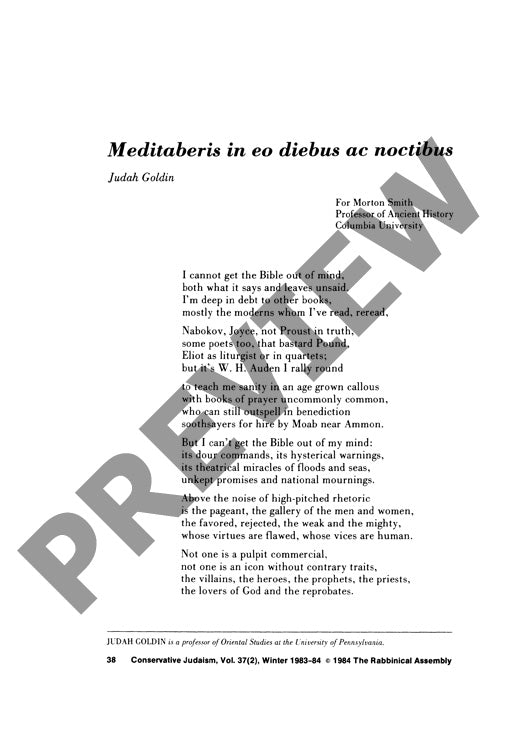Meditaberis in Eo Diebus Ac Noctibus
Couldn't load pickup availability
This literary analysis examines the complex characterization of biblical figures through a poetic meditation on scriptural narratives. Goldin employs a personal, reflective methodology that draws upon both ancient texts and modern literary influences, including Nabokov, Joyce, Eliot, and particularly W.H. Auden, to explore the psychological depth and moral ambiguity inherent in biblical storytelling. The study systematically analyzes key biblical personalities from Adam and Eve through the Chronicles, arguing that these figures resist simple categorization as heroes or villains. The analysis reveals that biblical characters consistently display flawed virtues and humanized vices, engaging in deception, cunning, and intrigue while maintaining their divine favor or disfavor. Key findings demonstrate that biblical narrative deliberately avoids hagiographic treatment, instead presenting multidimensional characters whose actions remain unpredictable yet authentic. The author concludes that this literary complexity—encompassing figures from Tamar and Jacob's sons to Deborah and Lot's daughters—reflects a sophisticated narrative strategy that acknowledges human fallibility while maintaining theological significance. The study contributes to biblical literary criticism by emphasizing the text's psychological realism and its rejection of simplistic moral categorization, positioning biblical narrative as a precursor to modern literary complexity.

More Information
-
Physical Description
-
Publication Information
Published 1983-1984
ISBN
-
Publication Credits
Judah Goldin

